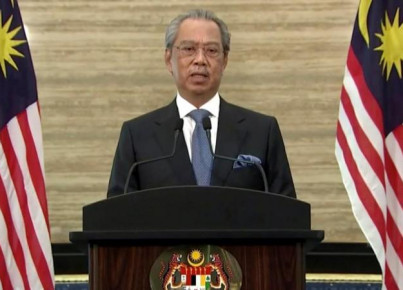Income gap and sustainability issues remain a challenge as the country works to achieve its 2030 goals
Over the years, the economic development of Malaysia has been nothing but impressive. Since its independence from the UK in 1957, the country has been focusing all of its effort on strengthening the economy and improving the welfare of its citizens. For almost 5 decades until 2018, Malaysia recorded a stable GDP growth at an average rate of 6.1% per year, according to a report from OECD. The country also has a relatively high human development index at 0.804 – the third-highest in ASEAN after Singapore and Brunei Darussalam.
On top of these notable achievements, Malaysia set a high bar also for its medium and long term objectives. Not only does the country aim to achieve high-income status by 2024, but it is also working towards achieving sustainable growth and equality across all income groups, ethnicities, and regions – as outlined in the Shared Prosperity Vision 2030 document. Nevertheless, in working towards these goals, the country still needs to tackle several challenges both at home and abroad.
One of the most pressing issues in Malaysia is structural differences. Officially, Malaysia’s social fabric is divided into two segments: the majority Bumiputera or the Malay population, and the minority ¬non-Bumiputera, which mainly consists of Chinese and Indian populations. Historically speaking, economic disparity has always been an issue between the two groups, as national wealth used to be largely concentrated in the hands of the market-dominant Chinese population. However, although progresses are being made with regards to equal opportunities between groups, today the divide is still evident. The income gap between Bumiputera, Indians and Chinese has increased four times in the past 27 years. For this reason, the government is trying hard to create a balance between all ethnic groups, in particular by adopting the Bumiputera empowerment agenda, which aims to boost the population’s socio-economic standing. Moreover, the government is also committed to putting more attention on the development of other non-Bumiputera populations, to ensure everyone receives equal access to education, work, and opportunities.
Another issue that might hinder economic development is palm oil, and its effects on Malaysia-EU trade relations. Palm oil is one of Malaysia’s primary industries , accounting for 2.8% of the country’s GDP, and Malaysia is the world’s second-largest producer of palm oil after Indonesia. Since 2010, the Malaysian government and the EU have been working towards establishing a Free Trade Agreement. However, negotiations are on hold due to diverging views on the environmental impact and the sustainability issues associated with the production of palm oil. The initial reaction of the European Parliament on the issue was to ban the use of palm oil for biofuels by 2030. However, looking at the economic consequences of this decision, the EU decided instead to limit the amount of high-risk Indirect Land Use Change (ILUC) biofuels in entering its market. By definition, ILUC occurs when agricultural lands previously used for growing food are converted for biofuel production, resulting in the release of carbon emissions into the air. Biofuels categorized under the high-ILUC risk categories are those that are produced from areas that have a higher concentration of carbon such as forests, wetlands and peatlands.
Although this decision created a degree of leniency, it is still difficult for Malaysian palm oil to qualify under the low-ILUC risk category. The government is now working towards expanding the production of sustainable palm oil. This is done by restricting the development of peatlands, banning the conversion of forest reserves for palm oil, and certifying local plantations with the Malaysian Sustainable Palm Oil (MSPO) certification. Doubts remain on whether or not this certification system can be recognized by the EU, and a win-win solution is yet to be agreed. Experts are advising both parties to reassess their terms of engagement in order to create a more favorable outcome for both the palm oil industry and the global environment.
Considering the above-mentioned elements, Malaysia faces a challenging situation. The income gap and sustainability issues remain detrimental, as they can significantly affect the country both internally and externally. However, the government is highly committed in addressing these problems, and the country appears to be on the right track to recover from the Covid-19 pandemic and continue the path to achieve its 2030 goals.
By Rizka Diandra and Alessio Piazza






